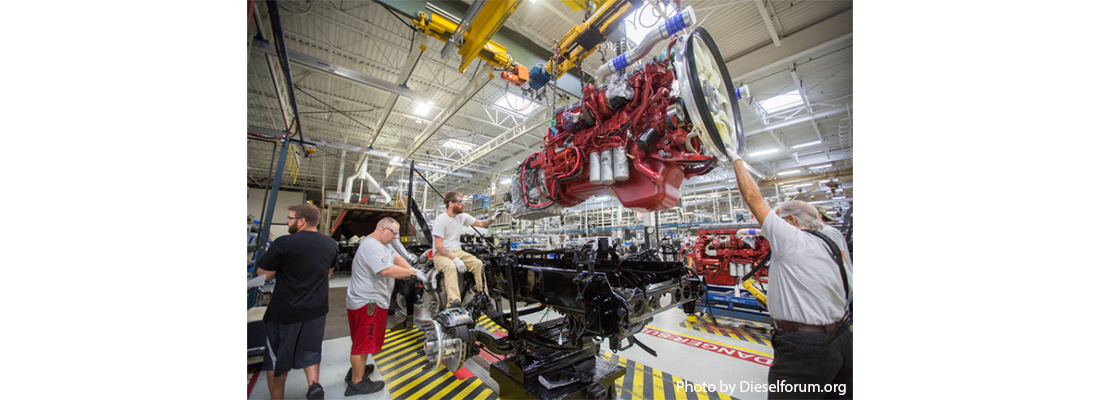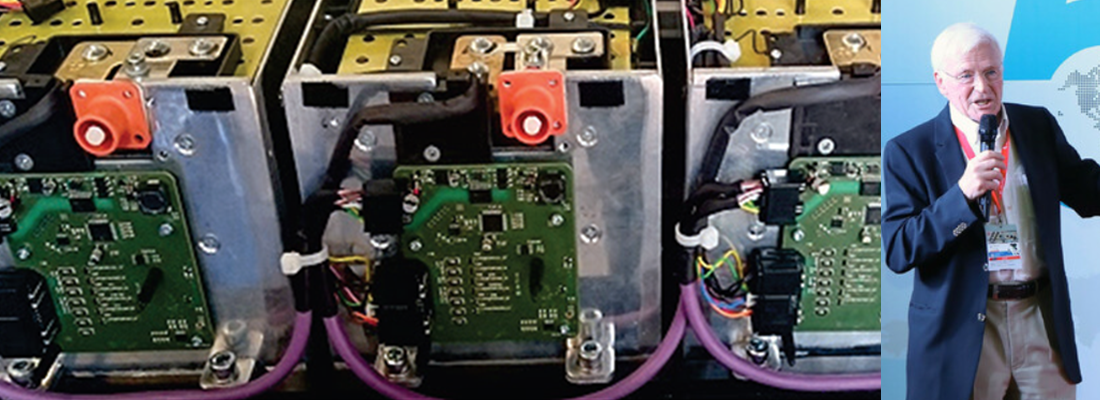Remanufacturing of diesel engines and components, key part of circular economy, celebrated on Reman Day
The remanufacturing of heavy-duty diesel engines and their components provides significant value to customers, the economy and society at large, and are recognised on Global Remanufacturing Day, according to the Diesel Technology Forum and reported by dieselforum.org.
“Heavy-duty diesel engines and their components are high-value investments, designed with reliability and durability in mind to last thousands of hours or go hundreds of thousands of miles. Built into their design from the ground up is detailed consideration of the value throughout the full life cycle of the product, and that includes remanufacturing,” said Allen Schaeffer, Executive Director of the Diesel Technology Forum, a not-for profit association representing diesel engine and equipment makers, components, emissions control and fuel suppliers.
“Remanufacturing has become an important part of engine manufacturers businesses and their relationship with their dealers, distributors and customers, making it one of the lesser well known but valuable attributes of diesel engines, and an increasingly important one as customers evaluate lifecycle costs of ownership as new fuels and technologies enter the marketplace. Global Reman day is a great way to recognize this important but often lesser-known aspect of the heavy-duty industry, and we recognize DTF member companies who are holding events at their plants and locations around the country today,” noted Schaeffer.
Automotive and diesel parts remanufacturing is expected to see steady growth up until the year 2024 according to market research firm Persistence Market Research.
At certain lifecycle and usage intervals, diesel engines can be rebuilt with new internal components such as bearings, valves, cylinder liners and rings to manufacturer performance specifications of the original product. Worn components are made of valuable metals which are themselves recyclable. Producing new products requires a certain amount of raw materials and energy. Remanufacturing uses significantly less raw materials like iron ore, aluminium and other metals, and overall, less energy, which also means fewer greenhouse gas emissions.
Remanufacturing is a standardized industrial process by which engine cores are returned to same-as-new, or better, condition and performance. The process is in line with specific technical specifications, including engineering, quality, and testing standards. The process yields fully warranted products. An industrial process is an established process, which is fully documented, and capable to fulfil the requirements established by the remanufacturer.
To learn more about the remanufacturing of heavy-duty diesel engines and components, visit some of the leaders in remanufacturing:
- AGCO Reman
- Remanufactured Diesel Injectors | Bosch Auto Parts
- Caterpillar | Cat Reman
- CNH Industrial Reman
- Aftermarket & Remanufacturing | Cummins Inc.
- Reman Definitions – Understanding Your Options | Mopar Magazine (FCA)
- Remanufactured Parts & Components | John Deere US
- GM OE Engines: Chevy, Buick, GMC, and Cadillac | GM Genuine Parts
- Products Reman - Isuzu Diesel Engines
- MTU Reman Technologies
- Remanufactured Parts Facility | Volvo Trucks USA
- YANMAR RePower - YANMAR Industrial Engines
Share your remanufacturing stories with us
Do you have an innovation, research results or an other interesting topic you would like to share with the remanufacturing industry? The Rematec website and social media channels are a great platform to showcase your stories!
Please contact our Brand Marketing Manager.
Are you an Rematec exhibitor?
Make sure you add your latest press releases to your Company Profile in the Exhibitor Portal for free exposure.






